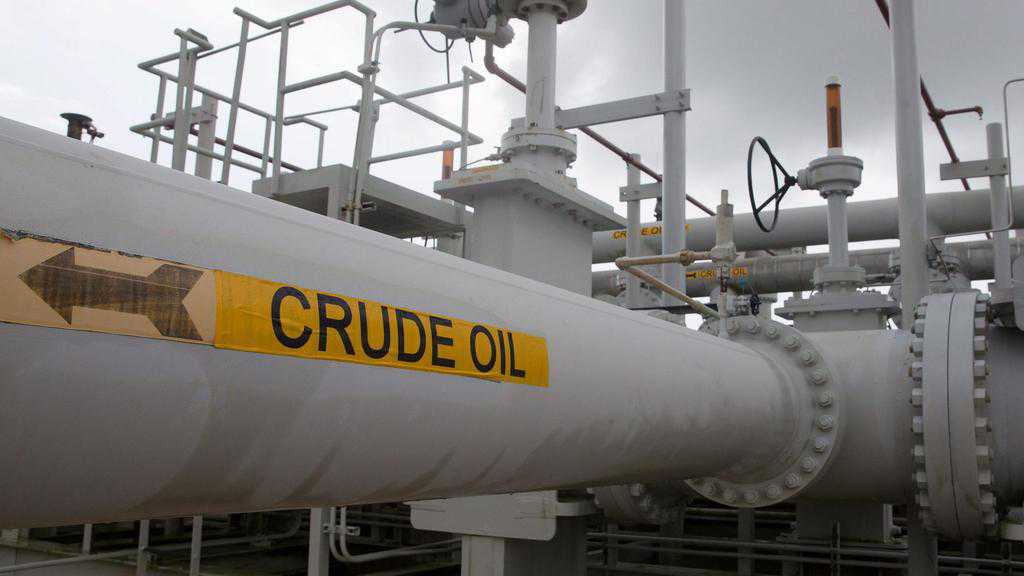Why the Middle East's energy companies should continue digitizing
11 February, 2021

The Mena region can unlock $2.6 trillion in value through digitalisation by 2025, logistics giant DHL estimates. That is merely four years away.
As market pressures intensify, no strength firm are able to ignore this potential. THE CENTER East’s curiosity in digital equipment that falls under the umbrella of the 4th Industrial Revolution offers been gradually increasing. However now appetite is normally soaring; energy stakeholders not buying digitalization are fast becoming outliers.
This is also true in times of strain - and also have no doubt, this is really one of these. Oil prices continue steadily to hover between the $50s-$60s per barrel selection and the International Strength Company says at least $1 billion should be spent annually in the near-term to produce an environmentally friendly energy economy.
On the other hand, the International Monetary Fund warns of a ‘long and difficult ascent’ out from the global economic plunge that's being spurred simply by the Covid-19 pandemic. The squeeze on economics, operational norms and talent development is very real, particularly for countries that may have had restricted travelling and lockdowns during the last year.
These difficulties sole emphasise the value of investing in digitalisation. For example, digital tools and technology thread into each one of the three characteristics that the Boston Consulting Group explained the companies best in a position to rebound from the pandemic possess: end-to-end source chain transparency, agile operations and quickly digitised client interactions.
The unpredictability wrought by Covid-19 has put various energy companies on an even playing field in the centre East and beyond. Nonetheless it has managed to get clearer than ever that how big is an energy company isn't everything.
Firms’ growing appetite to crank up digital growth together because they rebuild their monetary robustness could organically nurture a digital ecosystem in your community. It seems sensible to leverage each other’s experience to accelerate improvement as the global clock for energy secureness and decarbonisation ticks on relentlessly. Therein lies the speedy go up of digitally orientated partnerships across the region.
Many are now vigorously going for walks what has long been just digital talk found in the GCC. In January, Saudi Aramco - the world’s biggest oil producer - launched Dammam 7, a new supercomputer which is probably the top ten most powerful on earth. This raise for exploration and creation marks the next step in Aramco’s digital transformation. Saudi Aramco Development Provider, a subsidiary of Aramco, also signed a deal with Cognite to set up a new company that will focus on digitalisation in Saudi Arabia and the broader Mena region.
In the UAE, strength innovator Adnoc has saved $2bn over the past five years by leveraging advanced technologies and digitalisation to enhance drilling efficiencies and optimise procedures. It has also recently awarded a $519 million agreement to further expand the world’s largest 3D seismic survey. And most just lately, Adnoc teamed up with ExxonMobil to jointly distinguish areas where advanced technology can further maximize operational efficiencies and unlock value.
To the east, Petroleum Development Oman (PDO), the sultanate’s major coal and oil exploration and development company, has wrapped up phase three of its Information Management digital transformation voyage with Hexagon. This consists of an individual platform where all of the lifecycle info is centralised for a lot more than 4,100 workers and contractors - bolstering transparency and efficiency at once.
THE CENTER East’s push is well-timed, for its progress is paramount to sustaining global competitiveness on both the energy and digital stage.
For example, 50 per cent of coal and oil respondents to a survey by Deloitte said their organization is already buying strength efficiency, cleaner fuels to electricity field functions, and acquiring businesses exterior their core focus. And another 50 % of industry respondents polled by Deloitte explained they would spend money on digital technologies to improve energy effectiveness and in operational technology, such as carbon capture to reduce future emissions.
Another area that the region needs to keep up to date with? Cyber threats. Globally, across all industries, a staggering 36 billion data were exposed in info breaches in the primary half of 2020, relating to a report specific by Risk Established. And last year was already the “worst time on record” by the finish of the next quarter in conditions of the total number of information exposed.
A lot more digital sheriffs are had a need to safeguard operations, especially as cybersecurity is fast being woven into strength corporations’ competitiveness. Greater transparency and accountability will be increasingly coveted by digitally aware traders. What were daily, as well as weekly, checks must right now be achieved on a minute-by-minute or second-by-second basis. In these times of both uncertainty and wonderful growth, there is no such thing as excessive diligence.
The same pertains to exploring and applying digital solutions. Looking at 1 billion persons worldwide still lack usage of electricity and that we happen to be lagging on the Paris Agreement goals, our exploration of digitalisation to streamline effectiveness and bolster scalability ought to know no bounds.
Source: www.thenationalnews.com
